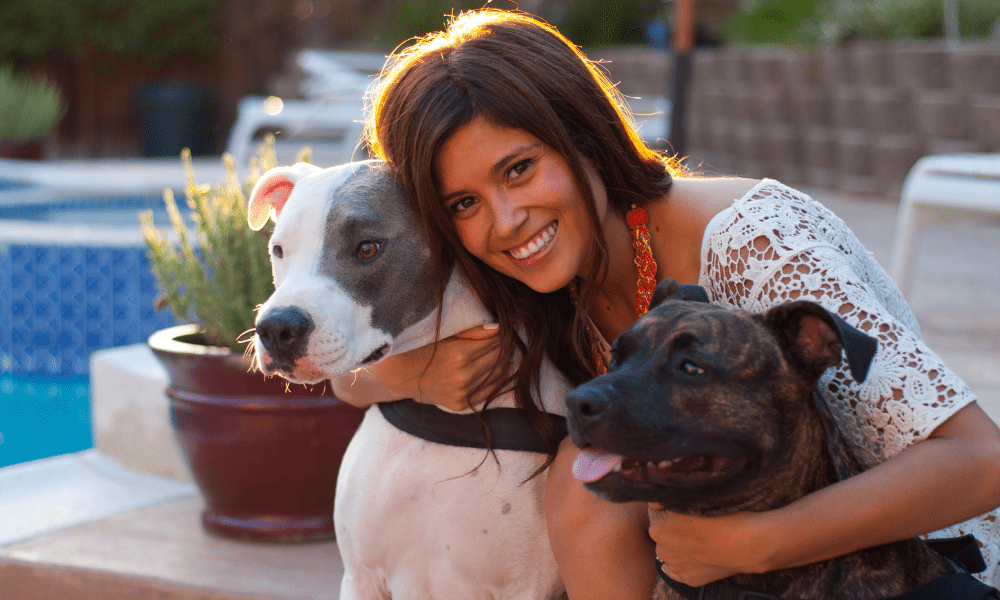Breed-Specific Legislation (BSL) has been a controversial topic in the dog-loving community for decades. These laws, which target certain breeds based solely on their appearance or perceived reputation, have serious consequences—not just for the dogs themselves, but for the families who love them.
At Kennel to Couch, we believe that every dog deserves to be judged as an individual, not by stereotypes or fear. Understanding what Breed-Specific Legislation really means is critical if we are to protect dogs and promote fair, effective public safety policies.
Let’s break down the real impact of BSL—and how you can be part of the movement to end it.
What is Breed-Specific Legislation?
Breed-Specific Legislation refers to laws or regulations that ban or restrict the ownership of certain dog breeds, regardless of an individual dog’s behavior.
Commonly targeted breeds include:
- Pit Bull-type dogs
- Rottweilers
- German Shepherds
- Doberman Pinschers
- American Bulldogs
These laws can take many forms, including:
- Outright bans in cities, counties, or housing developments
- Mandatory sterilization of certain breeds
- Higher insurance premiums for owners
- Restrictions on public access (e.g., requiring muzzles in public spaces)
The problem? These laws are based on stereotypes, not facts.
How Breed-Specific Legislation Affects Dogs
- Increased Shelter Populations and Euthanasia Rates
When families are forced to surrender their beloved pets because of a breed ban, shelters become overwhelmed with dogs that are often labeled as “unadoptable” solely based on breed. This leads to:
- Higher euthanasia rates for targeted breeds
- Longer shelter stays for affected dogs
- Fewer opportunities for dogs to find loving homes
Even well-behaved, family-friendly pit bulls and other breeds find themselves at risk simply because of how they look.
- Dogs are Judged by Appearance, Not Behavior
Breed labels are often inaccurate. Many mixed-breed dogs are mistaken for banned breeds based purely on physical traits.
Scientific studies show that behavior is not reliably predicted by breed alone. A dog’s upbringing, training, and socialization are much bigger factors in behavior than genetics. Yet under BSL, even a gentle, well-trained dog can be confiscated or restricted simply because of its breed or resemblance to a banned breed.
- Missed Opportunities for Safer Communities
Breed bans focus on the wrong end of the leash. Instead of targeting irresponsible owners or neglectful environments, BSL punishes responsible families and well-behaved pets. Effective public safety comes from:
- Enforcing leash laws
- Promoting responsible ownership
- Providing accessible training and education programs Breed-neutral legislation addresses the root causes of dog bites and aggressive behavior, leading to safer communities without discrimination.
How Breed-Specific Legislation Hurts Families
- Families are Forced to Choose Between Their Home and Their Dog
In communities with breed bans, families may be faced with heartbreaking choices:
- Move away from their home
- Surrender their beloved dog to a shelter
- Live in constant fear of losing their pet if discovered
No family should be forced to abandon a cherished member because of discriminatory laws.
- Emotional Trauma
Losing a pet is devastating under any circumstances—but losing a dog due to breed discrimination adds a layer of injustice and helplessness. Children, in particular, suffer deeply when separated from their best furry friends. - Financial Strain
Families may face fines, legal fees, higher insurance rates, or relocation costs just to keep their pets safe. BSL often imposes financial hardships on law-abiding dog owners who simply want to care for their companions.
What the Experts Say About Breed-Specific Legislation
Leading organizations oppose BSL, including:
- American Veterinary Medical Association (AVMA)
- Centers for Disease Control and Prevention (CDC)
- American Bar Association
- Humane Society of the United States (HSUS)
The CDC has explicitly stated that breed is not a reliable predictor of dog bite risk, and that factors like owner behavior, training, and socialization are far more important.
What We Can Do Instead
Rather than targeting dogs based on breed, effective public safety strategies should focus on:
- Responsible pet ownership education and enforcement
- Behavior-based evaluations rather than breed labels
- Community programs for training and dog behavior support
- Accountability for neglectful or abusive owners
Breed-neutral policies save lives, protect families, and create safer communities for everyone.
How You Can Help End Breed-Specific Legislation
- Educate Others
Share the facts about BSL and breed behavior with your friends, family, and local leaders. Changing minds starts with honest conversations. - Support Breed-Neutral Laws
Advocate for legislation that promotes responsible ownership without targeting specific breeds. - Be an Ambassador
If you own a pit bull or other often-targeted breed, be a positive example. Well-behaved dogs and responsible owners are powerful tools in breaking stereotypes. - Speak Up
Contact lawmakers, attend city council meetings, and support organizations working to overturn BSL.
Join Us in the Fight Against Breed Discrimination
At Kennel to Couch, we work every day to change the narrative around pit bulls and other misunderstood dogs. We believe that every dog deserves to be judged as an individual—and that no family should lose their best friend to unfair laws.
If you want to help, consider adopting, fostering, or supporting pit bulls waiting for homes. Visit Kennel to Couch to learn more about how you can stand up for dogs who deserve a second chance.
Together, we can end breed discrimination and build a future where every dog—and every family—is treated with fairness, compassion, and respect.



Recent Comments